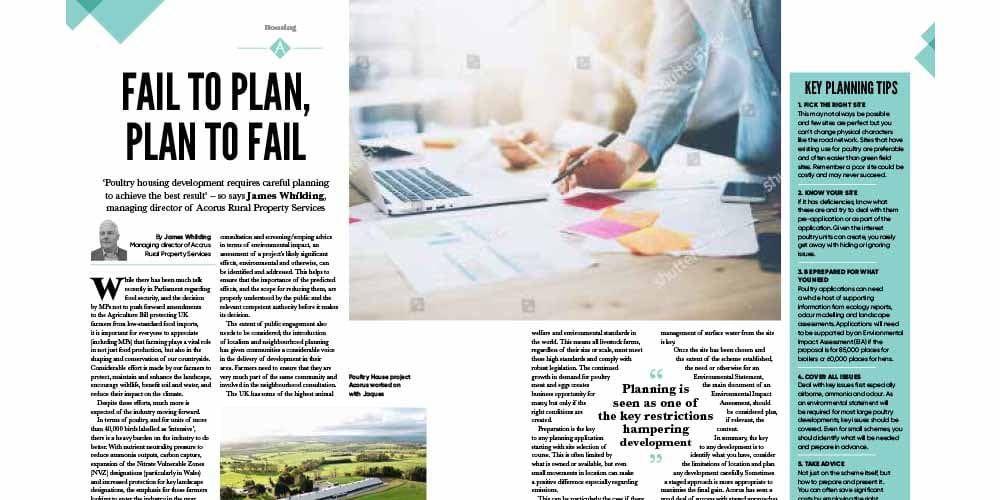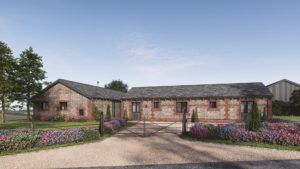An article written by Acorus Managing Director, James Whilding, and published for the NFU Poultry magazine recently focused on the strategy for poultry-related planning application specifically, however the key headlines apply, broadly speaking, to many forms of planning application.
Planning is seen as one of the key restrictions hampering development, and this has certainly been evident in recent years. However, through pre-application consultation and screening/scoping advice in terms of environmental impact, an assessment of a project’s likely significant effects, environmental and otherwise, can be identified and addressed. This helps to ensure that the importance of the predicted effects, and the scope for reducing them, are properly understood by the public and the relevant competent Authority before it makes its decision.
The extent of public and other stakeholder engagement also needs to be considered; the introduction of localism and neighbourhood planning has given communities a considerable voice in the delivery of development in their area. Farmers and other rural businesses need to ensure that they are very much part of the same community and involved in the neighbourhood consultation.
Preparation is the key to any planning application starting with site selection of course. This if often limited by what is owned or available, but even small movements in location can make a positive difference especially regarding emissions.
This can be particularly the case if there are nearby ecological sites or residential dwellings where potential nuisance for example, are a concern. It is also important to address access both in terms of visibility and the network generally, and with flooding high on the agenda in recent years, management of surface water from the site is key.
In summary, the key to any development is to identify what you have, consider the limitations of location and plan any development carefully. Sometimes a staged approach is more appropriate to maximise the final gain. Acorus has seen a good deal of success with staged approaches.
A range of material is here to provide some initial assistance, but otherwise speak to an Acorus consultant here for further advice and information.






